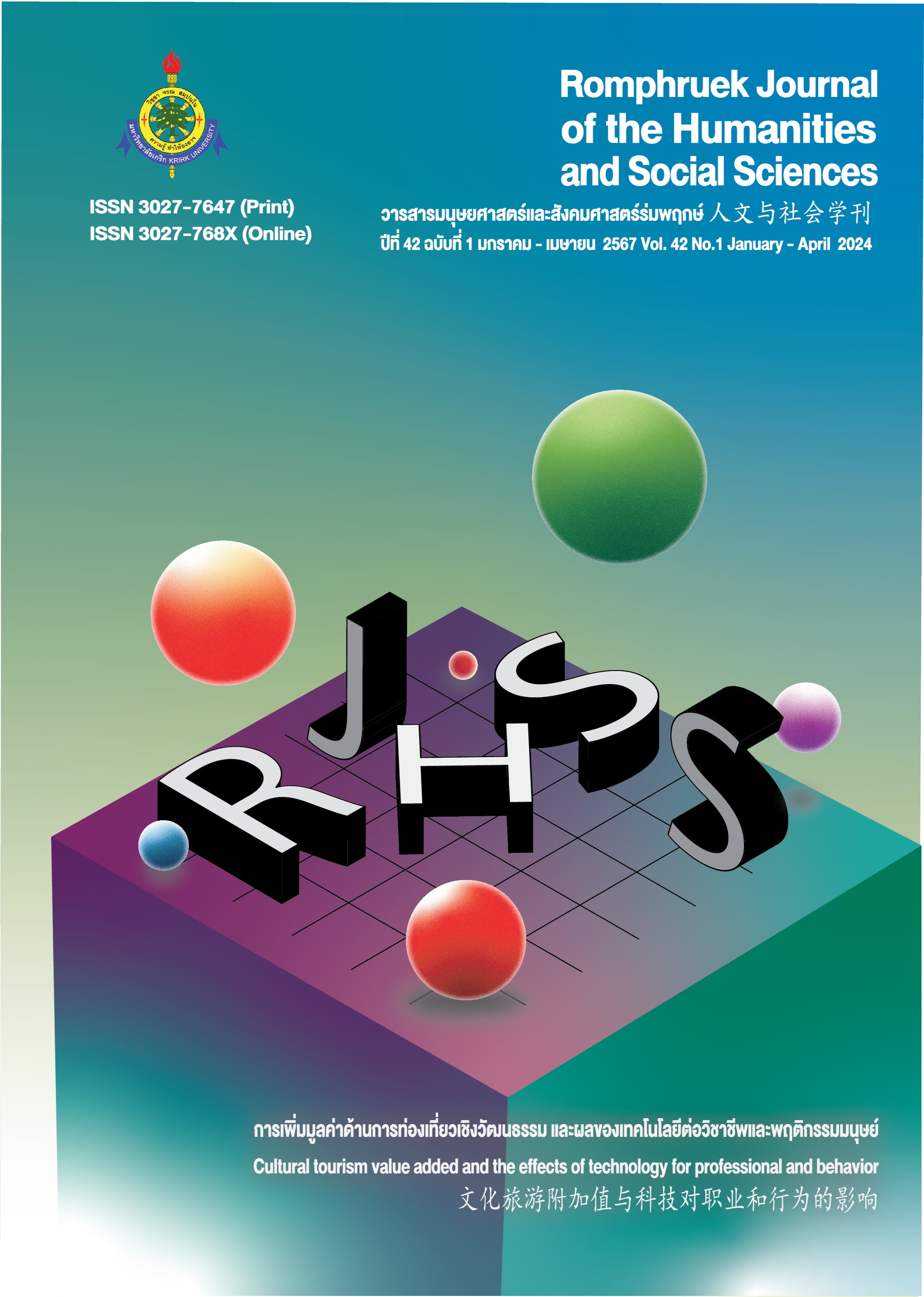Model of Training for Capacity Building in Practice Teacher of The Undergraduate Students of Education Program in Physical Education and Sports Science Program at North Bangkok University
Main Article Content
Abstract
The objectives of this research were to 1) develop the training model for ability building to enhance competency in professional teaching experience of the students in Bachelor’s Degree Program in Education, Department of Physical Education and Sports Science North Bangkok University, 2) compare training achievements for enhancing competency in professional teaching experience of the students in Bachelor’s Degree Program in Education, Department of Physical Education and Sports Science North Bangkok University, 3) examine the satisfaction of the trainees to enhance competency in professional teaching experience of students in the Bachelor of Education Program. Department of Physical Education and Sports Science North Bangkok University. The experimental group consisted of 43 students in practice teaching program of Physical Education and Sports Science, practice selected by purposive sampling method.
The results showed that,
1.In terms of the evaluation on the appropriateness of outline content of the training format by experts on all 13 items, the result showed that the overall average was ( = 3.79, SD= 0.29) at a good level.
2.In terms of the overall achievement before - after training, the result showed that the overall achievement after receiving the training was higher than the achievement before receiving the training at statistically significant level. When considering each aspect, it was found that the average value of the knowledge after receiving the training was higher than before receiving training at statistical significance of .00 level.
3.In terms of the satisfaction level of the participants to enhance competency in the teaching professional experience, the result showed that the average value was ( = 4.58 SD= 0.08) at the highest level.
Article Details

This work is licensed under a Creative Commons Attribution-NonCommercial-NoDerivatives 4.0 International License.
Every article published in the Romphruek Journal of the Humanities and Social Sciences is the opinion and point of view of the authors. Thery're not the viewpoint of Krirk University or the editored department. Any part or all of the articles for pablication must be clearly cited.
References
ถนอมพร เลาหจรัสแสง. (2545). Designing e-Learning หลักการออกแบบและการสร้างเว็บเพื่อการเรียนการสอน. ศูนย์หนังสือแห่งจุฬาลงกรณ์มหาวิทยาลัย.
ธุวานันท์ รัตนนิลอนันต์ และสุนทร พันธัง. (2565). ความต้องการจำเป็นในการเสริมสร้างสมรรถนะ ในการฝึกประสบการณ์วิชาชีพครูของนักศึกษาหลักสูตรศึกษาศาสตร์บัณฑิต สาขาวิชาพลศึกษาและวิทยาศาสตร์การกีฬา มหาวิทยาลัยนอร์ทกรุงเทพ. การประชุมวิชาการระดับชาติและระดับ นานาชาติ เบญจมิตรวิชาการ ครั้งที่ 13 วันพฤหัสบดีที่ 25 พฤษภาคม 2566, มหาวิทยาลัยกรุงเทพสุวรรณภูมิ, 303 – 316.
ฝ่ายฝึกประสบการณ์วิชาชีพครู. (2560,10 กันยายน). คู่มือฝึกประสบการณ์วิชาชีพครู. คณะครุศาสตร์ มหาวิทยาลัยราชภัฎนครราชสีมา. http://www.buddhiststudies-nrru.net/wp-content/uploads/2019.pdf.
เมทิกา พ่วงแสง. (2559,10 กันยายน). ความพึงพอใจของผู้เข้ารับการฝึกอบรมหลักสูตรด้านการวิจัย มหาวิทยาลัยเทคโนโลยีราชมงคลพระนคร. RMUTR.
สำนักงานเลขาธิการคุรุสภา (2549). คู่มือการประกอบวิชาชีพทางการศึกษา. โรงพิมพ์คุรุสภาลาดพร้าว.
สุรศักดิ์ ปาเฮ. (2553). การพัฒนาครูทั้งระบบตามยุทธศาสตร์การปฏิรูปการศึกษาทศวรรษที่สอง (พ.ศ.2552-2561), ประชุมสัมมนาทางวิชาการ วันที่ 28-29 ธันวาคม 2553 ณ โรงแรมนครแพร่ทาวเวอร์ จังหวัดแพร่, 1.
สุวุฒิ ตุ้มทองและปณิตา วรรณพิรุณ. (2555 ). การพัฒนารูปแบบการฝึกอบรมแบบผสมผสานโดยใช้เทคนิคการจัดการความรู้เพื่อพัฒนาสมรรถนะตามมาตรฐานทักษะวิชาชีพระดับสากล.วารสารวิทยบริการ, 23(3), 109.
เสาวภา ปัญจอริยะกุล.(2560, 19 เมษายน). การพัฒนาหลักสูตรฝึกอบรมการวิจัยปฏิบัติการในชั้นเรียนยกระดับผลสัมฤทธิ์ทางการเรียน. CMRU. http://cmruir.cmru.ac.th/handle/123456789/2001.
อรนุช ศรีคำ. (2563,10 กันยายน). การศึกษาสภาพปัญหาการวิจัยในชั้นเรียนของนักศึกษาฝึกประสบการณ์วิชาชีพครู คณะครุศาสตร์ มหาวิทยาลัยราชภัฏบุรีรัมย์. BRU Personnel. http://www.blog.bru.ac.th/2021.
David C.Mc Clelland (1973, 11 December).Testing for Competence rather than for “Intelligence.” American Psychologist. www.ei. Haygroup.com.


